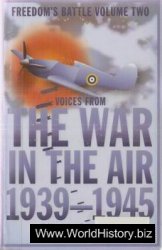The year 1607, which marks the settlement of Jamestown, the first permanent English colony in North America, is certainly one of the more significant dates in early American history. It would be wrong, however, to think that American history started there—after all, many peoples were here before the English. Spaniards roamed parts of North America 100 years before the English arrived, and as is well known, Native Americans were here tens of thousands of years before that.
As we have already noted, the origins of American history go back in other directions besides those that lead to what actually happened on this continent. The explorations of Christopher Columbus began an earlier phase of the story of the settlement of the New World, but that story also had roots that go even further back in time. The scientific discoveries of the Renaissance that made oceanic travel possible are part of the background of the discovery story. The Crusades generated interest among the the European powers in trading with the Far East, which in turn led to the desire for better communication between Europe and Asia.
For reasons we will not take time to explore, Pope Urban II ordered the first Crusade in the year 1099. The Crusades lasted for about 200 years, and during part of that time the Holy Land, the area that is now Israel, was occupied by European princes and their followers who tried to organize a Christian empire in the midst of the Islamic world. One byproduct of that occupation was enhanced contact with traders and travelers from the Far East who journeyed overland to the Mediterranean region, bringing silks, spices and other goods. Much of the commerce between the Middle East and Western Europe went through Italy, where merchants found that dealing with goods originating in Asia was quite profitable. Thus it was no coincidence that the first mariner to set out for Asia across the Atlantic was Italian.
The difficulty with trading with the Far East was that the overland routes were long and tedious, and caravans were subject to various taxes and raids along the way. Conducting commerce with the Far East by ship was faster and safer, though the trip was long. For a time traders seeking to deal with Asia sailed around the Horn of Africa, along its East Coast and then across the Indian Ocean until they reached ports in East and Southeast Asia.
Seaborne travel was at that time still dangerous because of limited knowledge of celestial navigation and the lack of accurate timepieces, which combined to make any ocean voyage that got outside the sight of land quite precarious. But with the Renaissance came advances in knowledge of navigation and the ability to determine longitude, which meant that vessels could proceed farther out to sea and maintain some sense of their whereabouts. Since the trip around Africa was long and difficult, and since it was known (despite myths to the contrary) that the world was round, sailors came to imagine traveling to the far east by sailing west.
Those ideas, of course, led to Columbus's discovery of what he thought was a direct route to India, but which was actually the ocean path to America.
The Crusades influenced events America's roots in another way. In our discussion of the Reformation we will point out that Martin Luther's frustrations with the Roman Church were a product of corruption which had in part begun during the time of the Crusades. Crusaders who died fighting in for Christ were granted by Pope plenary indulgences, which meant that they had a direct, rapid path to heaven in case of their death while fighting for God.
Since the Crusades were expensive, in order to raise funds to support those journeys, indulgences were eventually offered to those who supported the Crusades financially. That idea soon evolved into the concept of granting indulgences for other good works, such as supporting the building of St. Peter's in Rome. By Luther's time, indulgences were being sold with all the crassness that suggested the church was selling tickets to heaven.
Martin Luther found those and other practices of the church corrupt and issued his famous complaints against the church; thus began the Protestant Reformation. It often happens that once a revolution has begun, it is difficult to contain it, and from Martin Luther's first break with the Church of Rome, various other reformers took his ideas off in even more radical directions. Even in his own lifetime, Martin Luther was involved in disputes with other reform theologians, not only with Catholic authorities.
One of the defenders of the church against what was seen as the heresies of Martin Luther was King Henry VIII of England, who, in appreciation for his writing of a defense of the Roman Church, was granted the title of "Defender of the Faith," an appellation which British monarchs carry to this day. For reasons explore more fully below, Henry eventually became disgruntled with the pope, and therefore separated his church from Rome, an event known as the English Reformation. But some of the advocates of Protestant Reformation ideas took more extreme positions, saying that the Anglican Church had done little to reform itself except to replace the Pope as the head of the church with the King of England. Some of those reformers were upset by what they called "remnants of popery," and sought to purify the Anglican Church from its "Romish" influences. Important among such groups were the Puritans who would eventually settle Massachusetts Bay.
The colonization of North America by the English that took root at Jamestown, Virginia, in 1607 was also driven by additional forces emanating from the Crusades, namely, the Spanish and Portuguese conquests of Central and South America which had brought them enormous wealth. As more and more nations sought to expand trade as the key to national wealth, they saw the acquisition of colonies as a way to facilitate that trade. Exploration and colonization were advanced by ideas that have come to be identified as capitalism.
Along with the events described above are, of course, other major factors such as the religious movement begun by Mohammed which resulted in the religion of Islam; the rise and decline of the Roman Empire, which included the spreading of Christianity throughout most of the European world; the Viking explorations and Norman conquest of England. All those things and more have contributed to the chain of events which resulted in the nation we see today.




 World History
World History









